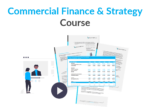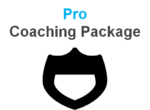
How to move from Audit to Transaction Services (TS / TAS) – Part 1 of 3: What is TS & how to stand out from the crowd?
In this 3-part post we’ve broken down – for those of you who have explored your accounting & audit exit opportunities and are certain of where you want to go next – the fundamental ways to help you stand out from your peers and make the move from Audit to Transaction Services / Transaction Advisory Services (TS). We’ve split this 3-part series into:
Part 1 – What is TS & how to stand out from the crowd? (YOU’RE HERE)
Part 2 – The different ways to execute your move out of accounting & audit
Part 3 – Myths & Things to watch out for when leaving accounting
In this Part 1 we’ll first touch on why TS exists and TS’s role in an M&A transaction (incl. how TS is very different to bread-and-butter M&A). Then we’ll brief you on the different activities you can do now in your current audit/accounting role to give you the best chances of securing a role in TS.
Part 1 Structure:
1. What actually is TS?
2. How to stand out from the crowd?
I.) What actually is TS?
Let’s begin with why Transaction Services teams (sometimes known as Transaction Advisory Services) exist.
As the name suggests, TS provide advisory services to improve performance through acquiring external capacity via acquisitions, joint ventures or mergers (known as “deals” or “transactions”).
These deals and transactions relate to “Inorganic Strategy” (conversely to Organic / Commercial Strategy) which step-changes a business: big improvements in a short space of time. The underlying reasons for these transactions can be defensive (e.g. diversifying risk by entering a new market) or offensive (e.g. to takeover an upcoming competitor).
Each of the institutions that the TS team work with likely also have their own Inorganic Strategy team (known as the “Industry” or “In-house” M&A team) who will lead and run the deal from start to finish, but whom outsource certain aspects of the deal to the TS team where required.
If there is an in-industry Inorganic Strategy team leading the deal, then what do TS do?
Well TS employees are most typically accountants and/or ex-auditors whom are “qualified” to give an opinion on the finances of a company. Therefore, as you can imagine, the TS teams are generally involved to support their client’s internal discussions and decision-making from a purely accounting or financial perspective.
The responsibilities of a TS team can of course vary depending on the size, internal capabilities and complexity of the deal within the institution they are supporting, but generally the deal is likely already in full swing before the TS team are brought in to provide their opinion on the integrity of the numbers.
At the larger advisory firms (such as the Big 4) TS may be divided into subdivisions such as Deal Structuring, Valuations & Financial Due Diligence (FDD) whereas in smaller advisory firms the TS team might have broader responsibilities.
TS is not be confused with the In-house or Investment Banking (IB) M&A teams. It is the In-house M&A team that lead the negotiations, M&A strategy development and whom are exposed to the entire deal life cycle. Similarly, the In-house M&A team may bring in an IB M&A team to support in any part of the life cycle. The TS team are there primarily to support from a financial integrity perspective only as mentioned previously.
Are there many different parts of TS?
Yes. Each division of TS can be very different/niche and lead down distinct career paths. We would require a much wider discussion of the financial market landscape to cover this.
In this post I will be assuming you know which division of TS you’re aiming for, what role each division plays in a transaction, which stakeholders they interact with and the likely career paths for each.
If this is an area you’re not 100% comfortable in I really recommend taking some time to fine-tune your knowledge in this area before making your next steps (keep reading – we can help!). Doing so will really help you shine through in your applications and also help you focus on the roles within TS that have the relevant accounting & finance career trajectory you’re aiming for.
Furthermore, it’s likely to make your move into TS easier to execute if you’re able to confidently portray your interest, applicable skillset and knowledge to prospective TS Partner’s / recruiters.
From my end, the most economical service I can provide to help you obtain a full insight into these areas (and more!) through our digital Exit Options | A guide to the landscape. We break down each of the areas of TS down (as well as many other roles within the inorganic & organic strategy landscape), maps out how they all interlink with one another and also how your previous audit/accounting experience can be invaluable in helping you land the roles (i.e. to help you in your applications & interviews).
If this is of interest make sure you use “ExitOptionsLoyalty20” for a discount at checkout!
Find out more about the Exit Options | A Guide to the Landscape.
Anyway, I digress. For those of you who are certain of where in TS you’re going, let’s continue…
II.) How to stand out from the crowd?
Whilst there are various divisions and roles in TS, the fundamental nature of the roles can be relatively similar. The following recommended activities you should execute are likely to be relevant to breaking in to the large majority of them.
The activities we’ve identified below are roughly in priority order based on what TS recruiters might consider to be the most extensive and/or relevant experience that provides transferable skills to TS.
Obtain transaction-audit exposure (of any kind!)
Make the most of the opportunities around you and your Audit network and get yourself onto an audit of a transaction.
Make sure your managers and colleagues know you want to be on the audit or at least have some exposure/shadowing experience related to a transaction to help you secure this experience.
When making your applications ensure you bring this experience out clearly and adequately on your Cover Letters and CV/Resume (i.e. including how you proactively sought out this experience, what you learnt, and if possible, how you added value).
Doing this demonstrates to prospective employers your real interest in the area and is the next best thing to actual transactions experience (which you’re unlikely to have coming from Big 4 Accounting & Audit). In fact, this might even teach you a thing or two about which areas of transactions you most you enjoy and want to apply to.
Gain exposure through auditing financial models
The experience of auditing financial models (such as financial forecasts & budgets) can be directly transferable to the type of work you might be doing in TS and you’ll learn a lot through trying to digest formulas (not to mention your frustrations of dealing with badly built, user-unfriendly spreadsheets).
The TS team will be looking out for this in your application.
Don’t be afraid or self-conscious that you’re not a modelling expert, as most people are straight after qualifying as an Accountant. Even minimal exposure in this area can be carefully highlighted on your CV/Resume and applications to give you a leading edge over other applicants. You’ll be surprised how many Accountant’s don’t talk about their regular use of Excel for fear of not being as “technical” or “Excel-whizzy” as Investment Bankers.
See my next point “Learn to design and develop financial models”.
Learn to design and develop financial models
You don’t need to pay for this! The basics of financial modelling are conceptually easy to understand.
There are enough free courses online that are reputable and will tell you everything you need to know. You may well be given a financial model assessment in your TS application but if you follow the fundamental rules of clean, logical & efficient financial model building you’ll be far ahead of other applicants …and that’s all the recruitment team will be expecting of you.
An easy way to show you really know what you’re doing in a TS model assessment (which are sometimes included in the interview stage), is to include a brief sensitivity analysis on the input assumptions of your model. I’ll leave you to google/youtube how to do this, but it’s simple. It helps portray the riskiness of the assumptions the modeller made, alongside the varying outcomes that could be possible if the investment/transaction were to go ahead.
Take advantage of opportunities to participate in strategy/business case activities
Yes, these are rare opportunities in audit, especially in your first few years and at the lower levels. However, because transactions are the result of wider senior-level strategy decisions, to progress in TS (or any field), experiences in strategy decision-making will be required in order for you to get promoted. And at this stage of your career, it’s your job to show that future growth potential you have in you!
Even small activities here will portray to TS recruiters your ability to manage projects or people and your higher-level thinking skills. If you have the opportunity to do ANY type of work that requires the development of the rationale to support decision-making, then you should take it.
These experiences sometimes include presenting the different options and pros/cons to the decision makers and, thankfully, they do not need to be directly related to your day job. Examples might include:
-Any type of audit team & timeline planning which requires senior level approval.
-Departmental personnel/wellbeing reviews and improvements.
-Corporate Sustainability/Corporate Citizenship volunteering activities which require you to review and make performance improvement recommendations to charities
-Any other activities outside of work that might reflect this experience such as society, committee, charity etc. involvement.
Start making (educated) personal investments
The act of making investments can, to some extent, portray your ability to assess many factors of a future outcome and subsequently execute decisions to maximise positive outcomes.
For instance, when assessing a business stock and its future value you will need to understand the business model and the future market & consumer trends to make an educated investment decision.
Even if your investments all “flop” you can discuss the logic behind your investment process and decision making (ideally you based your decision off of some amazing excel analysis you did) …something that many amateur investors are unable to do.
Shadowing a TS team (during non-confidential activities)
Shadowing may seem a bit feeble on your resume, but nevertheless it shows interest in the field, helps you discover different areas of TS you may decide are worth / not worth pursuing, and gives you a boost in confidence through knowing what you’re interviewers are talking about.
You never know, you might also just network your way into a job.
Start a CFA or equivalent qualification (we don’t recommend extended qualifications!)
You might see or hear of some colleagues taking the CFA or some sort of investment qualification with the hope that this makes them look more qualified than their peers.
These types of qualifications are rarely relevant to the TS team roles and responsibilities. The CFA in particular, is generally required for Asset Management type roles where you are required to give investment advice, yet it’s not generally required for TS.
Studying for the CFA is an expensive, lengthy and tiring way to try and appear ahead of your peers and ultimately would unlikely help you in the day to day TS roles.
I plan on writing more on the CFA in the near future, to help you decide whether it’s for you.
Having said that, there is certainly merit in upskilling your accounting skillset (particularly to future proof your CV / Resume in an AI-world). So much so, that we built the first (and only) online course specifically to help accountants & auditors move into more commercial and strategic roles.
Whilst your peers waste time on overly technical qualifications (such as the CFA), you’ll learn how to confidently build hard commercial skills. Through interactive modules, case studies, and real-world applications you’ll build financial models, assess business opportunities, and everything else needed to contribute meaningfully to strategic decision-making.
Importantly, you’ll prove to recruiters than you can translate your accounting background into a commercial context. Check out the Commercial Finance & Strategy – Principles and Execution online course.
Wrapping up…
–Try to fully understand the different divisions of TS, what role each division plays in a transaction, which stakeholders they interact with and the likely career paths for each BEFORE you start applying to ensure the greatest likelihood of success. Don’t forget you can use use “ExitOptionsLoyalty20” for a discount at checkout for our digital Exit Options | A Guide to the Landscape.
-There are many ways you can stand out from the crowd of applicants seeking TS roles and you can start doing them IMMEDIATELY. Focus on those most relevant to the area of TS you will be aiming for.
–Carefully highlight the relevant projects on your CV/Resume & applications ensuring you clearly state how they’ve helped you develop your desire to work in TS and where possible, how you added value.
How to move from Audit to Transaction Services (TS / TAS) – 3 PART SERIES
Part 1 – What is TS & how to stand out from the crowd? (YOU’RE HERE)
Part 2 – The different ways to execute your move
Part 3 – Myths & Things to watch out for
If you’d like more personalised advice from one of our Co-Founders to review TS job specs, step change your applications, discuss negotiating tactics and more… we’d be happy to support! Check out our personalised calls and coaching packages here.
Exit Options | Mapping the post-accounting & audit landscape
A lot of the clients we coach ask about moving into more strategic & commercial roles after spending time in traditional accounting & audit, but don’t know where to start or even what opportunities exist …so-much-so that we’ve put together a map of the landscape of accounting exit opportunities, which I encourage you to check out!
Want to land (and master) more strategic and commercial roles?
Learn how to upskill beyond your technical accounting & audit background in the first (and only) online course built specifically for accountants. Through interactive modules, case studies, and real-world applications, you’ll learn how to confidently build financial models, assess business opportunities, and everything else needed to contribute meaningfully to strategic decision-making. Build hard commercial skills to future-proof your skill set and prove you can translate your accounting background into a commercial context in the Commercial Finance & Strategy – Principles and Execution online course.
Spice up your CV/Resume for the post-accounting & audit world
We’ve created a 50+ page digital guide specifically to help those of you applying for more commercial & strategic roles. Our straight-talking CV/Resume advice for Accountants/Auditors is the only guide that is highly-specific to the traditional accounting & audit background: we give you real-life good & bad examples for showcasing your experience for strategic roles, the best structure & content to win over recruiters, a strategy for distributing your CV/Resume, interview advice, and more!











